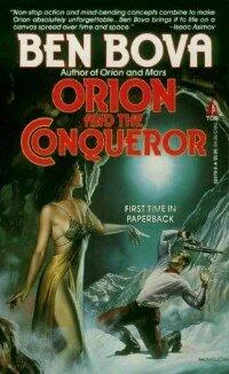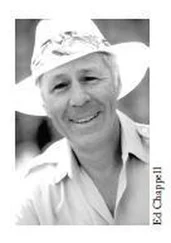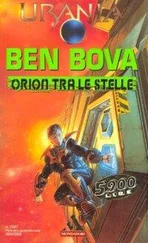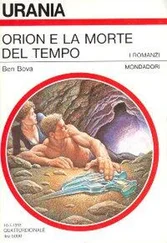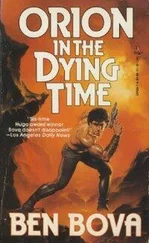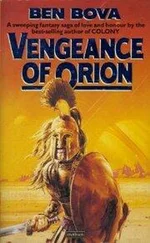“Philip continues to build his army. Why? Why does he march against democratic cities founded by Athenians and peopled by Athenian settlers? Does Philip have any enemy in the whole of Greece to justify the size of the mighty army he is building? No! He has none. His army is meant for us and it can be meant for no other. He intends to conquer our city, to enslave our people, to burn our buildings to the ground and put all of us in chains—your wives, your daughters, your sisters and mothers will be Philip’s slaves. Your sons, too.”
He castigated the very idea of kingship, insisting that a democracy and a tyrant can never be at peace.
“There is nothing, absolutely nothing, which needs to be more carefully guarded against than that one man should be allowed to become more powerful than the people. It would be better for us to be at war with all the states of Greece, provided they were democracies, than to be friends with them if they were ruled by kings. For with free states it would not be difficult to make peace when we wished, but with tyrants we could not even form an affiliation on which we could rely. Democracies and dictators cannot exist together! Every dictator is an enemy of freedom, and Philip means to end the freedom of Athens!”
Again the crowd roared with approval, stamping and clapping, cheering, whistling, waving scarves to show their enthusiasm.
And in the midst of the uproar the assassins struck.
I had been standing beside Alexandros and his four Companions, all of us dressed in plain homespun chitons and leather jerkins. None of us wore anything rich or conspicuous; Alexandros’ fingers were bare, and the short swords we carried were plain and undecorated.
While Demosthenes spoke the crowd surged forward slightly, as if eager to be closer to their idol. A few men pushed between me and Hephaistion, who was standing directly beside Alexandros on one side. Alexandros had his arm upon the taller Hephaistion’s shoulder, helping himself to stand tip-toe. Another man wedged himself between me and the young men. I turned and saw that three more were now standing just behind Ptolemaios and lanky Harpalos. Nearkos was too short for me to see in the crowd that was pressing around us.
But I could see Alexandros’ golden mane easily enough, and realized that it stood as an easy identification for anyone who wanted to find him. As the crowd broke into its thunderous ovation one of the rough-clad men who had pushed up to us stepped sideways, behind Alexandros. I saw his hand go to his belt and I knew he was going to thrust a dagger into Alexandros’ back.
“Behind you!” I shouted in the Macedonian dialect, bellowing as loud as I could over the roar of the crowd. I tried to plunge through the men separating us but suddenly my arms were pinned behind me and a swarthy short man with a scar halfway down his face was shoving a dagger at my belly.
My senses went into overdrive and the world around me slowed to a dreamlike lethargy. I kicked at the scar-faced man’s leg as I twisted my body sideways, spoiling his aim enough so that I took his dagger in my side instead of straight-on. I felt it go in and slice through me as my body instantly dampened the pain messages along my nerves and clamped down on the severed blood vessels.
My kick knocked the scar-faced knife wielder backward a step. I stamped on the foot of the man pinning my right arm as hard as I could and yanked my arm free while I saw that Hephaistion had shoved the other assassin from Alexandros’ back, but now the boys were surrounded by at least a dozen armed men.
I punched the man holding my left arm between the eyes. As he collapsed I swung my right arm back and smashed the other one with my elbow. With my freed left hand I hit scar-face, still trying to recover his balance, squarely in the jaw and he went down, blood spurting from his mouth. Then I leaped into the ring of knife-wielding men who had surrounded Alexandros.
The fight ended as quickly as it started. They broke and turned tail, disappearing into the crowd. By the time a local constable came up, frowning and officious, it was all over. Hephaistion had been nicked in the arm; I had been sliced in my side but I was consciously willing the muscles beneath my skin to hold the wound tightly together, and the blood was already coagulating.
The constable wanted to know our names and what the fight was about.
“They were cutpurses, obviously,” I said. “And stupid ones at that, since there isn’t one purse among the five of us.”
He scowled at me, then glanced back and forth among the youths. “Names,” he demanded. “I must have your names and places of residence.”
Alexandros, red-faced with fury, blurted, “I am Alexandros, son of Philip of Macedon. And if this is the way your noble city treats its guests, then my father is far too lenient with you.”
With that he strode off, his Companions around him. I followed them, leaving the constable standing there dumbfounded.
“It was a deliberate assassination attempt. Deliberate!” Alexandros raged all the way back to Aeschines’ house. “They tried to kill me.”
“But who sent them?” Hephaistion asked. Alexandros had torn a strip from his own chiton and tenderly wrapped the scratch on his friend’s forearm.
“Demosthenes,” answered Ptolemaios. “Who else?”
“That’s not logical,” Alexandros said.
No one had bothered to wrap my wound. I knew I healed quickly, and it did not appear that any vital organ had been cut. My body responded to my conscious control; although I had shut off the pain receptors in my brain, I could sense that the wound was neither deep nor serious. Infection was the only thing I worried about, yet I knew that I could manufacture antibodies at a prodigious rate, when necessary.
I seemed to recall Aten, the Golden One, smirking at me, telling me that he had built me to be a warrior and had included all the self-repair that I needed for my task.
“What do you mean, not logical?” Harpalos asked.
A little more calmly, Alexandros replied, “It would not be logical for Demosthenes to try to have me assassinated. Not here. Not now.”
“Not in Athens?” Harpalos wondered aloud.
“Not while he’s making his speech,” Ptolemaios joked.
Nearkos said nothing. He simply walked along with us, his dark Cretan eyes always on Alexandros.
“If you were assassinated in Athens,” Hephaistion argued, “your father would come down here and raze the city to the ground.”
“Or try to,” said Ptolemaios.
“That would force the Athenians to fight us, which is just what Demosthenes wants.”
Alexandros shook his head. “But Demosthenes wants the Athenians to fight a just war. You heard him; he claims that democracies have a higher spiritual standing than kingdoms.”
“Yes, and crows can sing.”
“He would not want to fight a war brought on by a cowardly assassination. In his own city, yet.”
“During his own speech.”
“The Athenians might refuse to fight such a war,” Alexandros insisted. “No, it was not Demosthenes.”
“Who then?”
We were climbing the cobblestoned street as it rose toward the residential area where Aeschines’ house stood.
Alexandros made a fluttering gesture with both his hands. “Aristotle taught me to look for the logical answer to every question.”
“So what’s the logical answer to this one?”
“Yes, who sent the assassins—logically?”
“The man who would gain the most from my assassination, of course.”
“But who would gain?”
Alexandros walked on for several silent steps, head bent, hands slowly balling into fists. I thought he was mulling over the question, but once he spoke I realized that he had known his answer all along.
Читать дальше
